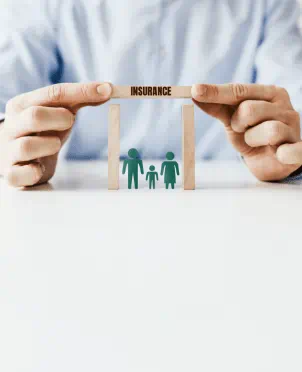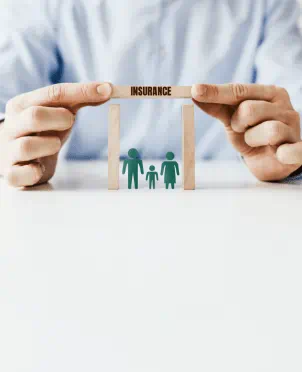- PERSONAL
- BUSINESS
- CORPORATES
-
ADVISORS
-
Investments
- MUTUAL FUNDS ADVISORS
- STOCKS & SECURITIES ADVISORS
-
Advisor
- SELECT ADVISOR
- CAREERS
Unlock Financial Tools, Investment Insights, And Expert Guidance“ All In One Convenient App !
Visit Our ABCD PageFind customised home loan solutions for your unique needs
Find a better interest rate for your existing home loan
Get a loan on your existing home loan to meet your needs
Turn your assets into a financial ally




Meet all your dreams and needs with a collateral-free Personal Loan
Make loan repayment flexible and hassle-free with Flexi Loans
Get quick funds with Aditya Birla Capital Instant Personal Loan
Enjoy affordable repayments and a flexible tenure with Aditya Birla Capital
Check your Aditya Birla Capital Personal Loan eligibility
Enjoy low personal loan interest rates for affordable repayments


Are you eligible for a Personal Loan? Find out now!
Calculate Now
Meet your financial needs with a collateral-free loan
Get loans for all your business needs at attractive rates

Bring security and peace to life’s unpredictability
Get a guaranteed regular pension plus lump sum on plan maturity
Get a guaranteed regular pension plus lump sum on plan maturity
Get the benefits of insurance & wealth creation in one convenient plan

Find out how much life insurance you need with our Human Life calculator
Calculate Now

Protect your vision with comprehensive eye insurance.
Protect your smile with comprehensive dental insurance and coverage plans tailored for you.
Get financial support with our hospital cash insurance for unexpected medical expenses.
 Mental Health & Nutrition Insurance
Mental Health & Nutrition Insurance
Get the best mental health insurance online with ABCD Aditya Birla Capital today!
Secure your future with our affordable personal accident insurance plans.


Diversify your portfolio and reduce risk with Debt Funds
Invest smartly in Equity Funds to aim for higher returns
Diversify your portfolio and reduce your risk with a mix of equity and debt
Goal-oriented fund with a lock-in period to create a corpus for retirement
Secure your child’s financial future with solutions-oriented children’s funds
Unlock a smart, hassle-free way to invest in various assets
Choose the smart way to diversify risks and grow investments
Follow the benchmark of smart investors to grow your wealth
Calculate wealth creation through lumpsum investment in Mutual Funds
Calculate Now

Utility bill payments made easy with BillPay
Shopping grocery, lifestyle or paying bills, pay anything with our payment solutions
Sending money to individuals and businesses made easy and instant
Pay on call in 3 simple steps by providing your UPI ID


 Debt Funds
Debt Funds
Diversify your portfolio and reduce risk with Debt Funds
 Equity Funds
Equity Funds
The smart way to invest in the stock market
 ETF Funds
ETF Funds
Invest easily, diversify wisely, and grow your wealth
 Hybrid Funds
Hybrid Funds
Strike the perfect balance between growth and stability
 Fund Of Funds
Fund Of Funds
Maximise your returns with Fund of Funds
 Index Funds
Index Funds
Follow the benchmark of smart investors to grow your wealth


Mauris Porta Arcu Id Tortor Pulvinar Cursus. Mattis, Diam Id.
CALCULATE NOW
Mauris Porta Arcu Id Tortor Pulvinar Cursus. Mattis

Mauris Porta Arcu Id Tortor Pulvinar Cursus. Mattis

Mauris Porta Arcu Id Tortor Pulvinar Cursus. Mattis
Check your credit score and get tips on how to improve it
Healthy living made easy with ABCD’s Digital Health Evaluation
Bring your assets and liabilities under one platform
Manage your money effectively with Spend Track.
Money management made easy
Understanding direct and indirect taxes
Know how to plan retirement well
Insurance and it's aspects for laymen
Investments and their jargon - simplified
Know all about loans and their management
Check your credit score and get tips on how to improve it
Healthy living made easy with ABCD’s Digital Health Evaluation
Bring your assets and liabilities under one platform
Manage your money effectively with Spend Track.
 Personal Loan EMI Calculator
Personal Loan EMI Calculator
Estimate your monthly loan repayments with Personal Loan EMI Calculator
 Home Loan Eligibility Calculator
Home Loan Eligibility Calculator
Calculate the expected EMI of your loan for easier repayments
 BMI Calculator
BMI Calculator
It measure your leanness or obesity basis your height and the weight.
 Income Tax Calculator
Income Tax Calculator
Calculate the tax payable by you based on your income
 SIP Calculator
SIP Calculator
Estimate the returns you can earn with your SIP investments
 SWP Calculator
SWP Calculator
Calculate the Life Insurance cover you need to secure your family’s future
 Life Insurance
Life Insurance
 Health Insurance
Health Insurance
 Mutual Fund
Mutual Fund
 Home Finance
Home Finance
 Personal Finance
Personal Finance
 Stocks & Securities
Stocks & Securities
Business Development : Meaning, Essential Skills & Responsibilities
What is Business development?
The role of business development executives is indispensable within organisations, especially in the competitive financial services sector. Their responsibilities span a wide spectrum, including:
Identifying Opportunities: Business development executives are responsible for identifying potential growth opportunities in the market. This involves analysing market trends, assessing competitors, and spotting gaps that the organisation can fill.
1. Building Relationships
Building and nurturing relationships with potential clients, partners, and stakeholders is a core responsibility that overlaps with the sales force. Effective relationship-building is pivotal in creating trust and expanding the organisation's network.2. Expanding Market Reach
Business development professionals aim to expand the organisation's reach into new markets or customer segments. They formulate strategies to tap into unexplored territories and gain a competitive edge.3. Strategic Planning
Developing and implementing strategies for growth and retention of existing clients is another critical aspect. Business development professionals must devise plans to achieve business objectives, and these strategies should be aligned with both client engagement and the pursuit of new opportunities.Business Development Skills
To excel in business development within the financial services sector, a diverse skill set is imperative. Key skills for success in this field include:1. Strategic Communication
Strong interpersonal abilities, analytical thinking, and a deep understanding of market dynamics are imperative.2. Market Research
A deep understanding of market dynamics, trends, and customer behaviours is essential to make informed decisions.3. Sales Skills
Sales skills are essential for converting opportunities into revenue, relying on communication, persuasion, and market understanding.4. Marketing Skills
Marketing skills are crucial for creating awareness and demand, complementing business development efforts with strategies like market research and branding.5. Analytical skills
Analytical skills are vital in business development, enabling professionals to assess market trends and make informed decisions for growth.6. Project management skills
Project management skills are essential in business development for ensuring smooth execution of strategies and initiatives to drive growth.In the financial services industry, where competition is fierce and the market constantly evolves, business development plays a pivotal role in ensuring an organisation's sustained success. With the critical responsibilities it carries, along with the demand for a diverse skill set, business development professionals are at the forefront of driving growth and innovation in the sector.
Making an impact: mastering effective strategies
Creative Thinking
1. Foster Creative Thought
As a business development executive, embrace creative thinking to discover unconventional solutions and approaches to tackle challenges and seize opportunities.2. Loyalty Programs
Develop and manage loyalty programs and incentive schemes to enhance client retention and satisfaction. Tailor these programs effectively to foster a sense of loyalty and commitment among clients3. Engagement Strategies
Craft and implement engagement strategies that keep clients, partners, and employees actively involved in pursuing the organisation's growth objectives.Strategic Planning
1. Market Research
Regularly update your understanding of market trends, competitor activities, and emerging opportunities to make informed decisions.2. Networking
Build and nurture a network of industry peers, mentors, and experts. Engage in discussions and knowledge-sharing within the financial community to gain valuable insights.By incorporating these strategies into your daily work as a business development executive, you'll not only enhance your efficiency and effectiveness but also drive meaningful growth for your organisation.
Sales vs. Business Development
One common misconception is that business development is synonymous with sales. While the two roles share some similarities, they are fundamentally distinct. Sales is often focused on closing deals, while business development encompasses a broader spectrum of activities, including client acquisition, partnership building, and market expansion. Despite these differences, there's a remarkable synergy between the two. Sales professionals can leverage their communication skills and client-centric approaches in business development, opening new avenues for career growth.Business development vs marketing
Business development focuses on identifying and nurturing potential opportunities, forming strategic partnerships, and driving long-term growth. It involves building relationships, exploring new markets, and creating avenues for sustained success. Marketing, on the other hand, is centred on promoting the company's products or services to attract and retain customers. It includes activities like market research, advertising, branding, and content creation. While business development lays the groundwork for new opportunities and strategic growth, marketing creates awareness and demand, helping to convert potential opportunities into tangible results. Both functions are essential and work together to ensure a company's overall growth and market presence.In conclusion, a career in business development is a multifaceted journey within the financial services sector. These professionals play a pivotal role in identifying opportunities, building relationships, and driving growth. Aspiring professionals should take the time to understand the unique skills and responsibilities that define this role. Aditya Birla Capital Careers is committed to nurturing talent and providing avenues for career growth in business development roles. With the right skills and a clear understanding of the field, you can unlock a world of growth and opportunity in business development.
ALSO READ:
1. Understanding Workplace Etiquette: Top 10 Things to Keep In Mind2. The Importance of Internal Mobility - The ABC Way
3. How to Prepare for An Interview at ABC



 PlayStore
PlayStore






 Insurances
Insurances  INVESTMENTS
INVESTMENTS  LOANS
LOANS  PAYMENTS
PAYMENTS  QUICK SERVICES
QUICK SERVICES 
 PLAY STORE
PLAY STORE APPSTORE
APPSTORE





























